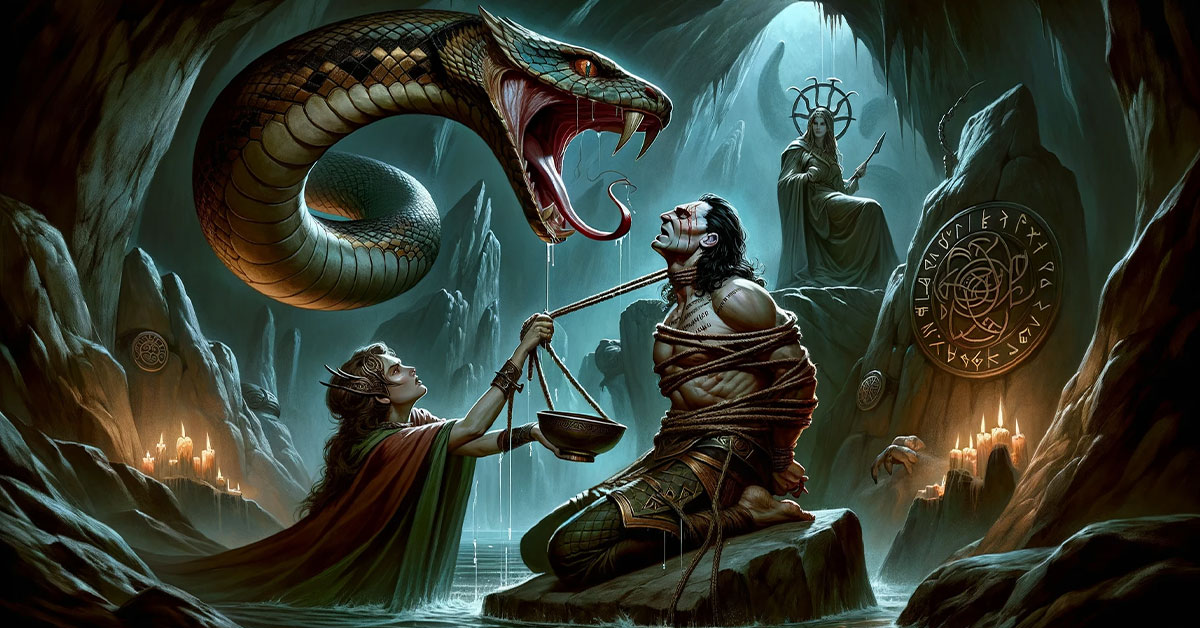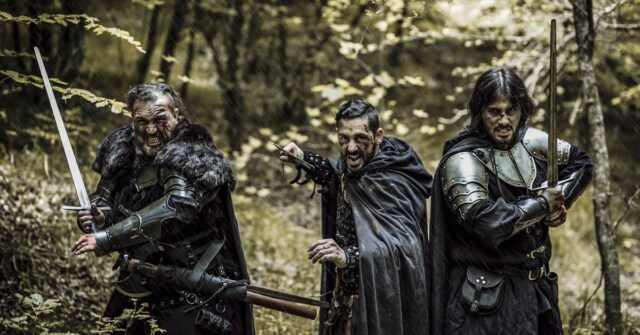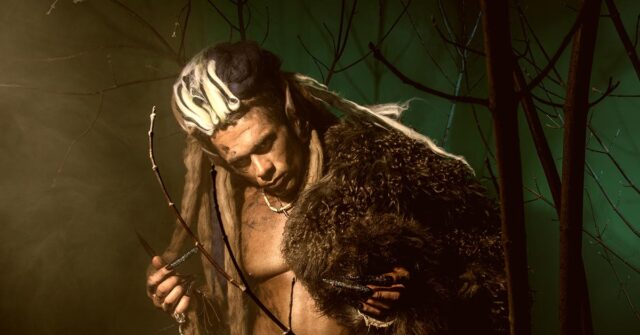Loki, the trickster god, holds a complex and controversial place in Norse mythology. This blog post delves into the intricacies of his life, his relationships with other gods, the events leading up to his death, and the legacy he left behind.
Whether you are a mythology enthusiast or just curious about this enigmatic character, this comprehensive guide aims to provide insightful and accurate information about Loki’s demise.
Introduction
The tales of Norse mythology have captivated the imaginations of people for centuries, weaving stories of gods, giants, and heroes. Central to these tales is Loki, a god of mischief and chaos.
This section provides an overview of Norse mythology, explores Loki’s role within it, and addresses common misconceptions about him.
Overview of Norse Mythology
Norse mythology, originating from the ancient Norse people, comprises a rich tapestry of gods, goddesses, and mythical beings. It served as both a religion and a collection of heroic and tragic stories that explained the world around them.
The mythology is primarily preserved in the Old Norse literature, including the Poetic Edda and the Prose Edda, written in Iceland during the 13th century.
The Significance of Loki in Norse Mythology
Loki, often referred to as the trickster god, plays a pivotal role in Norse mythology. His cunning and deceitful nature makes him a catalyst for many of the gods’ adventures and misfortunes.
Despite his mischievous tendencies, Loki also displays moments of cleverness and bravery, showcasing the duality of his character.
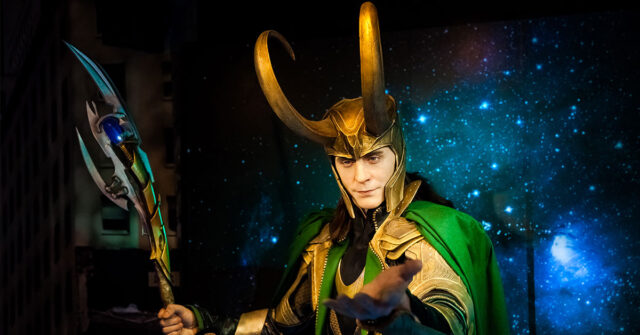
Common Misconceptions About Loki
Over the years, modern interpretations and popular culture have shaped and sometimes distorted the image of Loki.
He is often wrongly depicted as purely evil or as a devilish figure, whereas in the original myths, his character is much more nuanced, embodying both mischief and wit.
Loki’s Role and Relationships
Loki’s interactions and relationships with other gods and beings play a significant role in Norse mythology. This section explores his identity as the trickster god, his family ties, and his complex relationships with the gods.
The Trickster God
Loki is renowned for his cunning and ability to cause mayhem. He is a shapeshifter, capable of changing his form and gender, which he often uses to deceive others.
His tricks range from playful pranks to schemes with severe consequences for gods and mortals alike.
Family and Enmities
Loki’s family is as complex as his character. He is the father of three monstrous children: Hel, the goddess of death; Jormungandr, the world serpent; and Fenrir, the giant wolf.
His relationships with other gods are complicated, marked by both camaraderie and deep-rooted animosity, particularly with Heimdall and Thor.
Loki’s Complex Relationship with the Gods
While Loki is not an Aesir god, he lives among them in Asgard, maintaining a tumultuous relationship with the gods. He aids them in their quests, yet his tricks and deceit often put them in perilous situations, creating a dynamic of both dependence and distrust.

Loki (Movie Version) Action Figure
Unleash your inner Viking with the Diamond Select Loki figure! Featuring 16 points of articulation and a stunning Asgardian display stand. Perfect for collectors!
The Events Leading Up to Loki’s Death
The path to Loki’s death is filled with deception and revenge, culminating in a series of events that seal his fate. This section explores his mischief, the resulting punishment, and the roles played by his children.
The Mischief and Manipulation
Loki’s misdeeds are numerous, including causing the death of the beloved god Balder. His cunning and manipulation ultimately lead to his downfall, as the gods grow weary of his constant betrayals.
The Binding of Loki
As punishment for his transgressions, the gods capture Loki and bind him to a rock with the entrails of his son, Narfi, who is transformed into a wolf. A serpent is placed above him, dripping venom onto his face.
Loki’s wife, Sigyn, stays by his side, catching the venom in a bowl, though when she must empty it, the venom hits Loki, causing him to writhe in pain, creating earthquakes.

Premium Adult Loki Costume with Cape & Wig
Unleash your inner trickster with our high-quality Loki Laufeyson cosplay costume in various sizes. Perfect for Halloween, cosplay events, and themed parties. Transform and captivate!
The Role of Loki’s Children
Loki’s children play significant roles in his story and in the broader narrative of Norse mythology.
Jormungandr grows so large that he encircles the Earth, biting his own tail, and Fenrir is bound by the gods, destined to break free during Ragnarok. Hel reigns over the underworld, deciding the fate of the deceased.
Loki’s Death in the Eddas
The Eddas, the primary sources of Norse mythology, provide varied accounts of Loki’s death. This section delves into these descriptions, exploring the symbolism and interpretations associated with his demise.
Descriptions from the Prose Edda
The Prose Edda, written by Snorri Sturluson, offers a detailed account of Norse mythology and includes stories of Loki’s mischief and eventual punishment. According to the Prose Edda, Loki’s death is as dramatic as his life.
After being bound by the gods as punishment for his role in Balder’s death, he remains imprisoned until Ragnarok, the end of the world.
When Ragnarok finally arrives, Loki breaks free from his chains and embodies the chaos and destruction of the prophesied battle. He leads an army of giants and other monstrous beings against the gods in a final, apocalyptic confrontation.
During this epic battle, Loki faces off against Heimdall, the vigilant watchman of the gods. The two eternal enemies engage in a fierce duel, the details of which are not explicitly described in the ancient texts.
What is clear, however, is that this confrontation ends with both Loki and Heimdall slaying each other, bringing their longstanding enmity to a violent conclusion.
The exact means of their deaths, whether by weapon, magic, or some other force, is not specified in the surviving Norse sagas and remains a subject of speculation and interpretation.

Loki Laufeyson/Odinson Scepter
Elevate your Viking collection with this exceptional handcrafted Loki Laufeyson Scepter, featuring exquisite stainless steel craftsmanship and intricate metalwork. Perfect for cosplay or display.
Descriptions from the Poetic Edda
The Poetic Edda, a collection of Old Norse poems, provides a more fragmented account of Loki’s death.
In the Poetic Edda, Loki’s fate is intertwined with the cataclysmic events of Ragnarok, although his death is not explicitly detailed. He is foretold to stand against the gods, sowing chaos and destruction.
The Poetic Edda depicts Loki as a complex character, capable of both mischief and malice, and his actions ultimately lead to his own undoing.
Some interpretations suggest that Loki, in the guise of a giant, fights against the gods, contributing to the turmoil of Ragnarok.
While the Poetic Edda does not provide a clear account of Loki’s death like the Prose Edda does, it is implied that he meets a violent end in the chaos of the final battle, symbolizing the culmination of his antagonistic relationship with the gods and the inevitable consequences of his deceptive nature.
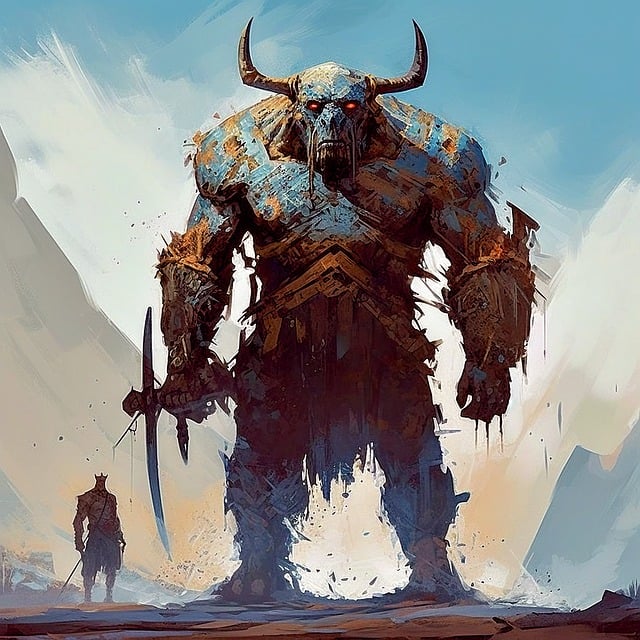
Symbolism and Interpretations
Loki’s death is rich with symbolism, reflecting themes of betrayal, retribution, and the cyclical nature of time.
Some interpretations suggest that his binding represents the containment of chaos, necessary for the maintenance of order, until the inevitable chaos of Ragnarok.
The Aftermath and Legacy of Loki’s Death
Loki’s death marks a pivotal moment in Norse mythology, leading to significant changes and leaving a lasting impact on the pantheon and cultural legacy.
This section explores the aftermath of his death, his role in Ragnarok, and how he continues to influence modern culture.
Changes in the Pantheon
Following Loki’s death, the pantheon of Norse gods undergoes significant changes, with many gods meeting their end during Ragnarok.
This apocalyptic event reshapes the cosmic order, bringing an end to the old world and heralding the beginning of a new one.
Loki’s Role in Ragnarok
Loki plays a crucial role in Ragnarok, the prophesied end of the world in Norse mythology. According to the ancient texts, he leads the forces of chaos against the gods, fighting alongside giants and his monstrous children.
In the epic battle that ensues, Loki faces Heimdall, the watchman of the gods, and they slay each other, marking the culmination of their longstanding enmity.
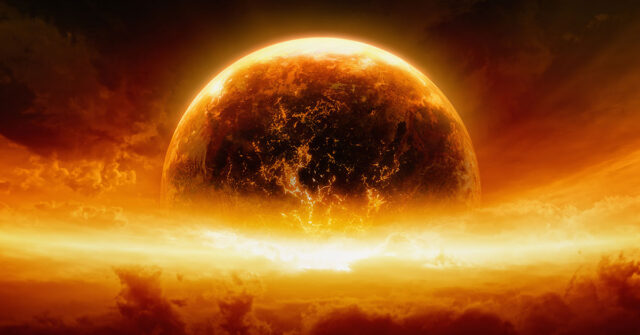
The Legacy of Loki
The legacy of Loki is complex and multifaceted. Despite his deceitful and chaotic nature, he is a character that has fascinated people for centuries. His cunning, wit, and ability to outsmart his foes have made him a memorable figure in Norse mythology.
In modern times, Loki has been reimagined in various forms of media, including literature, television, and film, often portrayed as a charismatic yet troubled antihero.
His enduring popularity attests to the depth and complexity of his character, and he continues to captivate audiences around the world.

Avengers Loki Framed Signed Autograph Picture
Capture the magic of the Avengers with this stunning framed, signed Tom Hiddleston photo. Perfect for Loki fans, it’s an ideal gift for any occasion!
Conclusion
Loki, the trickster god of Norse mythology, is a character shrouded in mystery and contradiction. His cunning and deceitful nature set him apart from the other gods, leading to a tumultuous relationship and ultimately his demise.
Despite his mischievous ways, Loki’s complexity and charisma have ensured his place as one of the most intriguing figures in Norse mythology. His legacy continues to thrive, reminding us of the captivating power of myth and storytelling.

